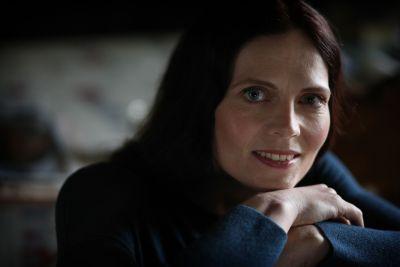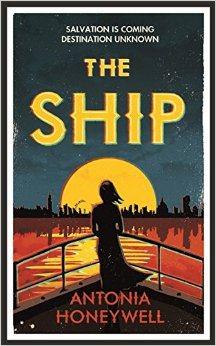Firstly, thank you for the extraordinary response to Nikesh Shukla’s brilliant post on the subject of diversity in fiction last week and for the many thoughtful contributions (here and elsewhere) to a debate which people are clearly keen to have whether or not they agree with his ‘provocation’ to white writers – and some expressed valid reservations, I thought. 
If you know me in real life or are a regular visitor of the Literary Sofa, you will know that I’m in favour of speaking openly and realistically about the hurdles encountered in the early stages of what may or may not turn into a writing career – another sensitive subject! (If not, see My First Year as an Agented Writer or Coping with Rejection, two of my most viewed posts and proof that people do want to talk about this.) As I tackle another draft of the second manuscript that will hopefully become my first published novel, I’m going to have to wait until September now to find out if my perseverance to date has paid off. Today I am honoured to host a beautiful piece by Antonia Honeywell which resonates strongly with me. I’m sure many will appreciate her continued openness on what it’s like to be Agented and Unpublished despite the deserved publication of her debut novel The Ship earlier this year. It’s not our chequered experiences that are unusual – far from it – more the fact that we’re willing to talk about them while they’re still fresh…
We went to Cornwall for May half term. We weren’t very lucky with the weather. The rental cottage was on a clifftop, and there was a sharp ten minute descent down to the beach, which was covered with mist. We gave it a few hours, hoping it would clear, and in the end, having exhausted the delights of the cottage, we donned our wetsuits and walked down anyway.
It was gray. It was cold. But there was sand in abundance and we had jumpers on over the wetsuits. Before many minutes had passed, the children were making sandcastles. No buckets and no spades and nowhere to buy any. No ice creams, no café. Just the sand, and the waves. I found a rock, got out my book and left them to it.
I was reading I Saw a Man, by Owen Sheers. It’s an uncomfortable novel, dealing with death and loss and lies – not the kind of thing the term ‘beach read’ conjures up. But on this particular beach, surrounded by uncompromising cliffs, the gray sea stretched to the horizon and the salt wind fighting me for the pages, it was strangely appropriate. The only color was the red of the children’s wetsuits, the only noise their screams and laughter as they challenged the sea with their sand creations. Why are they doing it? I asked myself. Why, when they know the sea is going to win, do they spend so much time building castles on the water’s edge? And why, when the construction they’ve made and decorated is destroyed, do they just start again, only pigeon steps from the ruins? And why, above all, are they laughing about it?
And I thought back to a time in my writing past. My second novel had got me an agent; it was going to be ‘the one.’ It’s a good novel – I reread it recently. Who knows, when I’ve finished the one I’m writing now, I may go back to it. But the point is that I’d pushed through the writing of the first, weathered its rejections, written another and got my reward in the Holy Grail of agent representation. Out it went on submission, full of hope and promise. And back it came. Again and again and again. And again, until we agreed to leave it. I wrote a third…when that came back, the agent in question dropped me like a stone and was last heard of converting an old people’s home into a B&B in Shrewsbury. And I was back at square one, just like the children, shrieking over whether the next castle would last longer if they just built it higher and forgot about the moat.
And I realized that, for the children, the constant destruction was not just part of their enjoyment. It was their enjoyment. The sand, the exercise, the orders barked against the wind and the crashing of the waves – what fun would there have been in creating the perfect castle without the certainty of its demise?
It struck me that, when we write, we’re building with sand, desperately pulling our castles in the air onto the ground, never satisfied with the results. The sea doesn’t only wash away our efforts, but pounds at the feet of the craggy monoliths of the classics, too. Nothing is sacred, and it can seem as though the only certainties are the bitter wind and the sheer futility of the enterprise.
But there are other certainties, if you change your perspective. Under the microscope, the sand becomes a kaleidoscope of precious stones, pearls, shells so tiny as to be jewelry for gnats. The very wave action that destroys our creations is the action that creates the sand in the first place. We cannot keep the landscape from shifting, but by playing in the sand, we become a part of it, however small an impression we might make.

That’s what counts, and for the lucky few, it’s enough. For those of us who dream of castles that might last long enough to attract an audience, it’s honestly not. And yet what else do we have? We’ve chosen words as our medium – slippery, wonderful, frustrating words. I thought publication was the end point, but it’s not even a beginning. No amount of sales, reviews or accolades can change the essential nature of the work we’ve undertaken. All we can do is keep doing it. Persevere. Take a few pigeon steps and try again. Give it all up, then get back in there. And if, like the children, we grasp our material with vitality, we’ll find the energy to carry on. That’s what matters. We’ll learn, and we’ll lose ourselves. Not giving up is the only choice that’s ours to make. And when, at last, the sun begins to dip, and the sky darkens, and we have no choice but to climb the cliff once more, we’ll look back and see a shape in the sand. ‘Look,’ we’ll cry. ‘Look! It’s still there.’
Thank you very much to Antonia for this uplifting and inspiring piece. If you have anything to share, regardless of where you’re at, all contributions are welcome.
And if you haven’t yet read Antonia’s first novel The Ship, today’s post reflects the richness of writing, imagination and feeling you can expect. It impressed me and was one of my Hot Picks 2015.
*POSTSCRIPT*
No post next week (I really wasn’t joking about those edits). On 9 July I’m delighted that Benjamin Johncock, debut author of The Last Pilot – one of my Summer Reads 2015 -will be joining me for a publication day Q&A session. His novel is absolutely stunning and I can tell you right now that it will be one of my top books of 2015.

